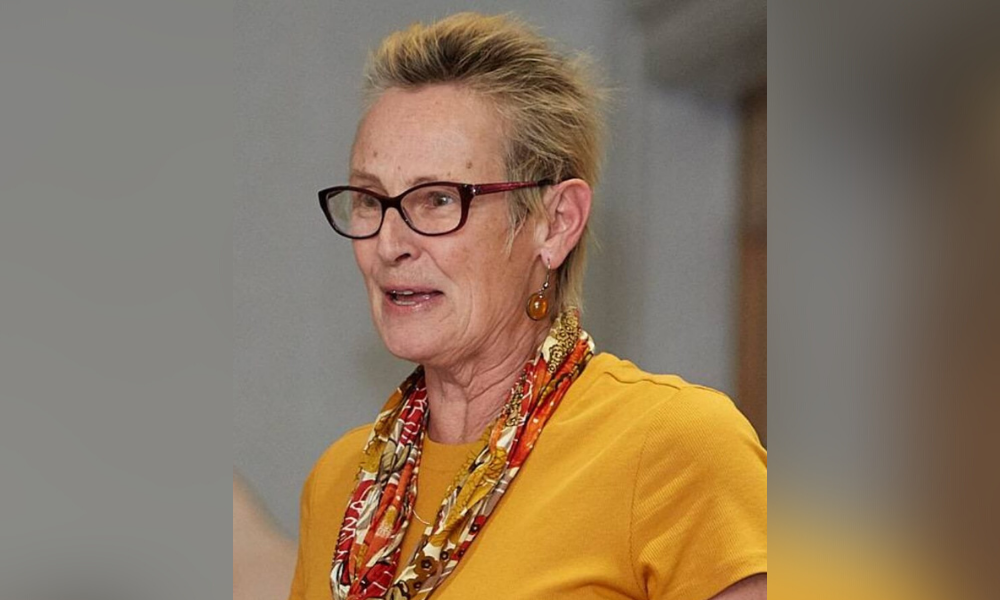
Zelda Perkins, Julie Macfarlane aim to bring in legislation banning most non-disclosure agreements

When Zelda Perkins broke the non-disclosure agreement in 2017 that she had signed with her former boss Harvey Weinstein, she was the first woman to do so.
Now, Perkins has teamed up with Canadian law professor and fellow NDA activist Julie Macfarlane to launch a campaign against non-disclosure agreements “that enable powerful individuals and corporations to cover up sexual harassment, racism and other wrongdoing,” said their press release.
The international “Can’t Buy My Silence” campaign, launched on Tuesday in Canada and the United Kingdom, “aims to highlight how the misuse of NDAs facilitates a form of institutional corruption in which organizations cover up wrongdoing to protect their reputations.” In signing NDAs, individuals are not permitted to share their damaging experiences, even among family, friends or counsellors. It will also offer information resources to those who have already signed or are in the throes of negotiating an NDA.
Most important, it hopes to bring in legislation that will ban the misuse of NDAs.
Perkins and Macfarlane are both British, though Macfarlane is also Canadian and until recently a professor of law at the University of Windsor. The campaign launch has already attracted attention in Canada – it was the subject of Tuesday’s Canadaland podcast – and in the UK, with The Times linking to an earlier story about Archbishop of Canterbury Justin Welby’s call for a ban on NDAs in the Church of England after learning of racist abuse aimed at priests and staff within the church.
In addition to sexual assault and harassment cases, NDAs are now used in employment and product liability contexts, Macfarlane told Canadian Lawyer on a call from London, England. Macfarlane is also the author of Going Public, which describes her own experiences of sexual abuse and rape as a young person at the hands of a priest; in 2016, she persuaded the Anglican Church and its insurer to end the default practice of requiring NDAs of victims of clerical abuse.
Normally, victims “can’t have a settlement unless they agree to an NDA,” on which there are no time limits, says Macfarlane. Most simply want to end the ordeal and don’t always understand the ramifications, but later “realize they can’t talk to anyone about what happened” under the terms of the agreement. Even before the campaign was launched, she says she had spoken to dozens of people about their experiences with NDAs, and more than a dozen stories are now posted to the campaign’s website.
Macfarlane and Perkins decided that the best way to tackle the problem was through legislation, Macfarlane says, adding that she has “helped develop a model of legislation which would ban NDAs for anything other than their original purpose”: to protect intellectual property, including trade secrets.
In late spring Irish senator Lynn Ruane introduced legislation that passed the committee stage with all-party support, and Ireland’s Department of Equality has commissioned research into the use of NDAs in cases of sexual harassment and discrimination. Macfarlane is now working with the party in government, and says the legislation will likely go forward unopposed.
“We hope to use the Irish legislation as a model,” she says, adding that it is helpful to have a template that can be adapted to various jurisdictions. On Sept. 14, Maria Miller -- an MP who chaired the England and Wales Parliamentary Women and Equalities Select Committee in 2018 and 2019 that investigated sexual harassment in the workplace and the misuse of non-disclosure clauses -- launched a bill to outlaw the misuse of NDAs. The bill appears to have strong cross-party support in the House of Commons, and will go to second reading at the beginning of 2022, banning NDAs where they harm a third party or the public interest, says Macfarlane.
In Canada, the same model bill passing through the Irish Parliament will be introduced in the provincial assembly of Prince Edward Island in October by the Green Party, which is the official opposition, by Lynne Lund, MLA for Summerside-Wilmot and the Deputy Leader of the PEI Green Party.
A similar bill will be introduced by independent senator Marilou McPhredran in the next session of the Parliament after the federal election.
A government task force in the state of Victoria, Australia is also considering legislation in this area, and in California Perkins and Macfarlane are working with NDA activist Ifeoma Ozoma, co-sponsor of the bill.
For the legal profession, NDAs have “crept into becoming a default,” Macfarlane says. “It’s seen as a successful way to silence people, but it’s unnecessary and harmful for people signing NDAs, and it potentially harms other people.”
For employers, and especially universities, it is important not to “pass the trash” by providing an NDA to someone who is a potential danger to students, she adds, citing her own experience of a fired professor who had an NDA with the university but later sued Macfarlane for defamation in a foreign jurisdiction after she had responded frankly to prospective future employers who had asked her about him.
“There needs to be a brake put on this, because it’s not serving clients, or the interests of the public.”